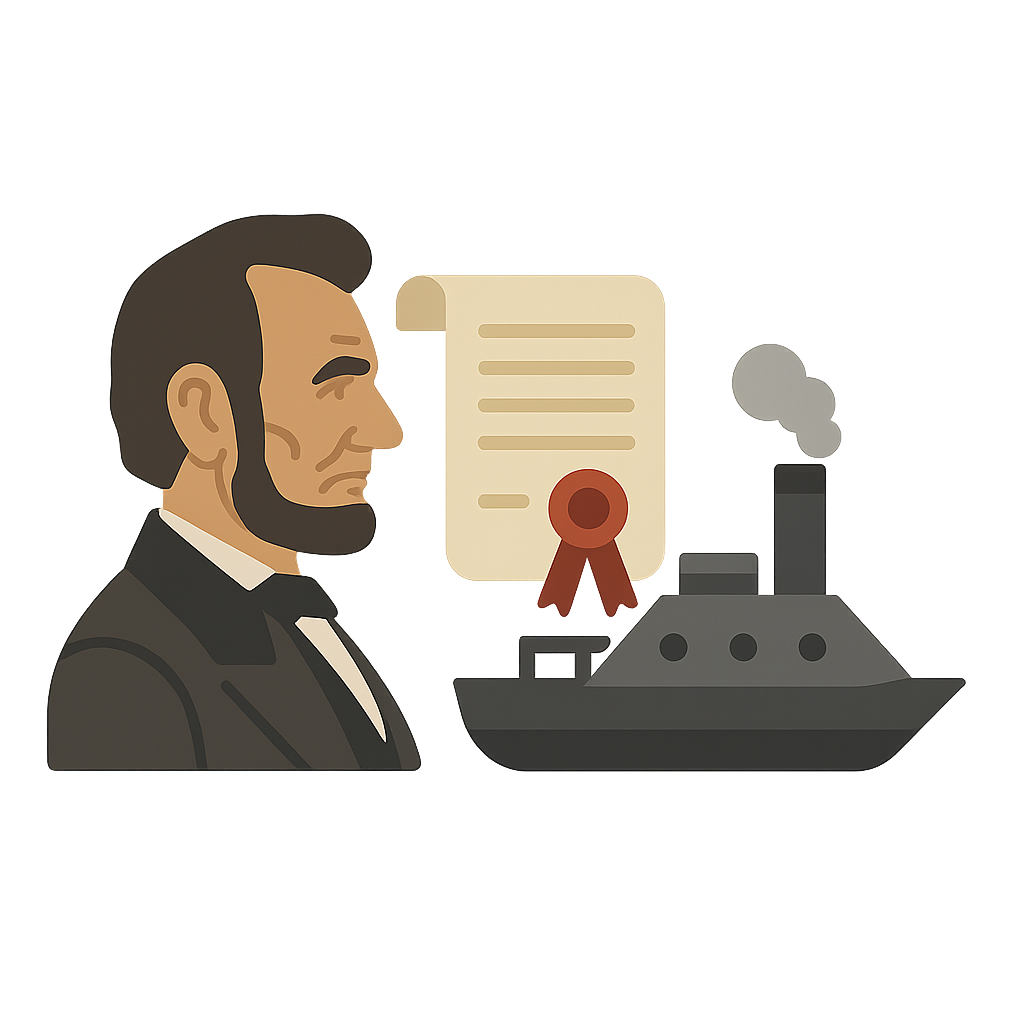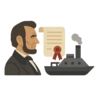Abraham Lincoln: A Nation's Hope
My name is Abraham Lincoln, and I had the great honor of being the 16th president of the United States. When I took office, our country was a wonderful place, full of bustling cities and wide-open prairies, but it was also deeply troubled. Imagine a big, loving family that suddenly has a disagreement so serious it threatens to tear the whole house apart. That’s what our country was like. The disagreement was about slavery. Some states in the southern part of our country believed it was right to own other people and force them to work, while many states in the north believed that every person had a right to be free. This argument was like a dark storm cloud that had been gathering for a very long time. I believed with all my heart that our nation could not continue this way, half-slave and half-free. I once said, “A house divided against itself cannot stand,” and I truly feared our American house was about to fall. The thought filled my days with worry and my nights with sleeplessness. I loved our country, our great American family, and I knew I had to find a way to hold it together, even if it meant facing the most difficult storm in our history.
That terrible storm broke on April 12, 1861. That was the day the fighting began, and the Civil War started. My heart felt as heavy as a stone. The states that wanted to keep slavery, called the Confederacy, decided to leave the United States and form their own country. But I knew we had to stay together as one nation, the United States of America. So, I called for brave men to join the Union army to keep our country whole. I remember seeing our soldiers in their blue uniforms, full of courage and hope, marching off to fight. It pained me deeply to know they were fighting other Americans, the Confederate soldiers in their gray uniforms. They were all sons, brothers, and fathers of our one American family, and now they were fighting each other on battlefields across our land. The war was long and full of sorrow. After much thought and prayer, on January 1, 1863, I signed a very important paper called the Emancipation Proclamation. It was a declaration that all enslaved people in the rebelling states were, and forever would be, free. It felt like lighting a candle in the darkest room; it was a promise of a better, more just future. Later that year, I traveled to a town called Gettysburg, where a terrible battle had been fought from July 1st to the 3rd. The ground was still scarred and the air was heavy with sadness. I gave a short speech there, to remind everyone why we had to keep going. We were fighting so that our nation could have a “new birth of freedom,” and to ensure that a government of the people, by the people, and for the people would not disappear from the earth.
Finally, after four long years, the war ended on April 9, 1865. A great wave of relief washed over me, but it was mixed with a deep sadness for the many lives that had been lost and the terrible wounds the war had left on our nation. My thoughts were not of punishment or anger, but of healing. My biggest wish was to “bind up the nation’s wounds” and bring our American family back together. I urged everyone to act “with malice toward none, with charity for all.” This meant we had to move forward without hatred and with kindness in our hearts. The job of rebuilding our country was just beginning. It was time to forgive, to mend what was broken, and to start the hard work of creating a nation where every single person was truly free and had the chance for a good life. Looking back, I see that our greatest struggles can lead to our greatest strengths. The war was a terrible time, but it helped our country take a giant step toward the promise it had made long ago—that all people are created equal. My hope was, and still is, that we would always choose to heal and grow stronger together, as one united family.
Reading Comprehension Questions
Click to see answer



